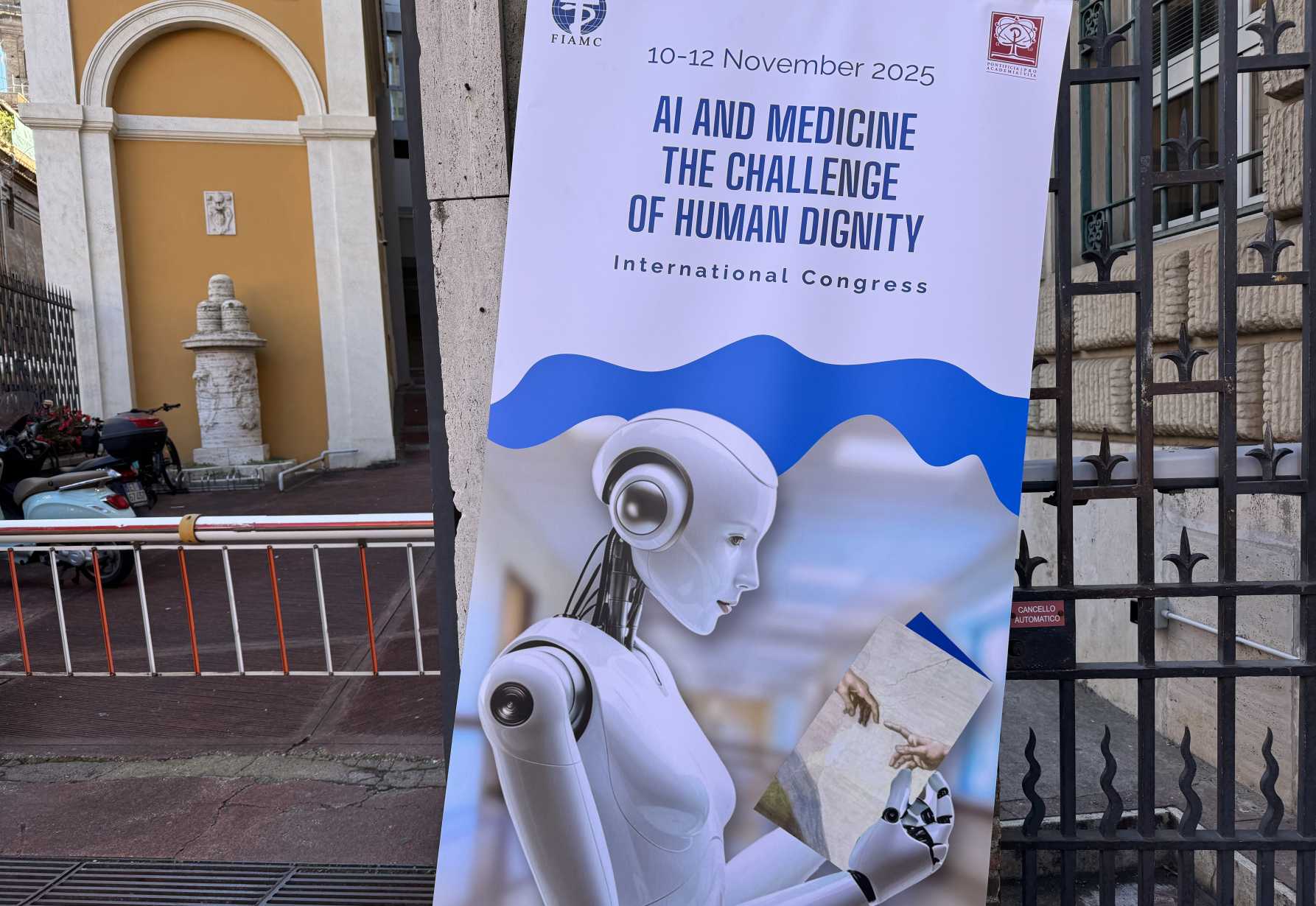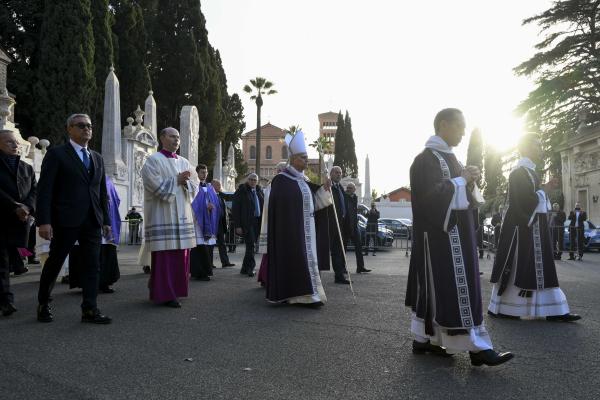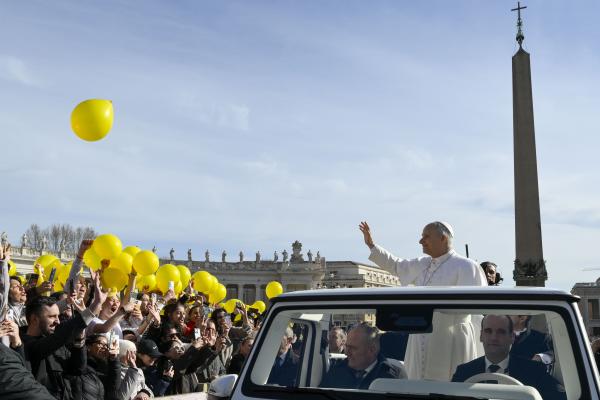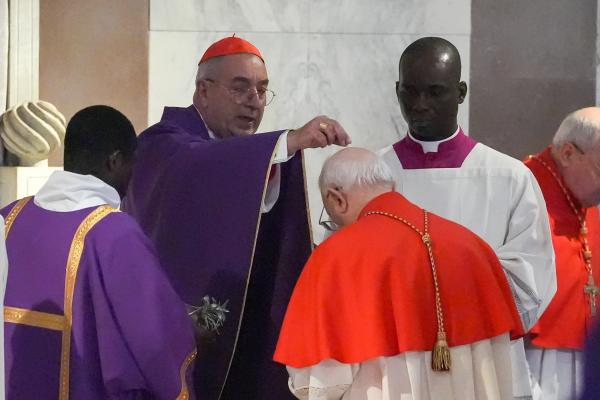Pope asks for extra care when using AI in medicine
The Pontifical Academy for Life and the International Federation of Catholic Medical Associations are sponsoring an international congress looking at the widespread use of artificial intelligence in health care settings.
 Cindy Wooden
Cindy Wooden

The poster for the international congress, "AI and Medicine: The Challenge of Human Dignity," sponsored by the Pontifical Academy for Life and the International Federation of Catholic Medical Associations, is seen Nov. 10, 2025, outside the Jesuit headquarters in Rome where the congress was being held. (CNS photo/Cindy Wooden)
VATICAN CITY (CNS) -- The more fragile a human life is, the greater the responsibility of those charged with caring for it, whether in person or through the use of technology, Pope Leo XIV said.
When artificial intelligence is used in health care, the pope said, "we must ensure that it truly enhances both interpersonal relationships and the care provided."
Pope Leo made his comments in a message to an international congress, "AI and Medicine: The Challenge of Human Dignity," which was sponsored by the Pontifical Academy for Life and the International Federation of Catholic Medical Associations.
Meeting in Rome Nov. 10-12, participants were looking at how AI is being used in the medical field to diagnose patients, personalize therapy, read x-rays and other diagnostic images, summarize research and more.
Two key concerns at the meeting, however, were on the ethical use of AI in medicine and on preserving the personal connection between patients and their health care professionals.
"Given the vast economic interests often at stake in the fields of medicine and technology, and the subsequent fight for control," Pope Leo told participants, "it is essential to promote a broad collaboration among all those working in health care and politics that extends well beyond national borders."
The impact of technology, especially AI, on human life is "pervasive," the pope said.
"It heavily influences the way we think, altering our understanding of situations and how we perceive ourselves and others," he said. "We currently interact with machines as if they were interlocutors and thus become almost an extension of them."
In that way, Pope Leo said, "we not only run the risk of losing sight of the faces of the people around us, but of forgetting how to recognize and cherish all that is truly human."
Technology and AI have benefited humanity, especially in the fields of medicine and health, he said, but they must be used with extreme care since human dignity is at stake.
No matter how sick or fragile, every human being has dignity and is worthy of respect "simply because he or she exists and is willed, created and loved by God," the pope said.
"Indeed," he said, "the greater the fragility of human life, the greater the nobility required of those entrusted with its care."



